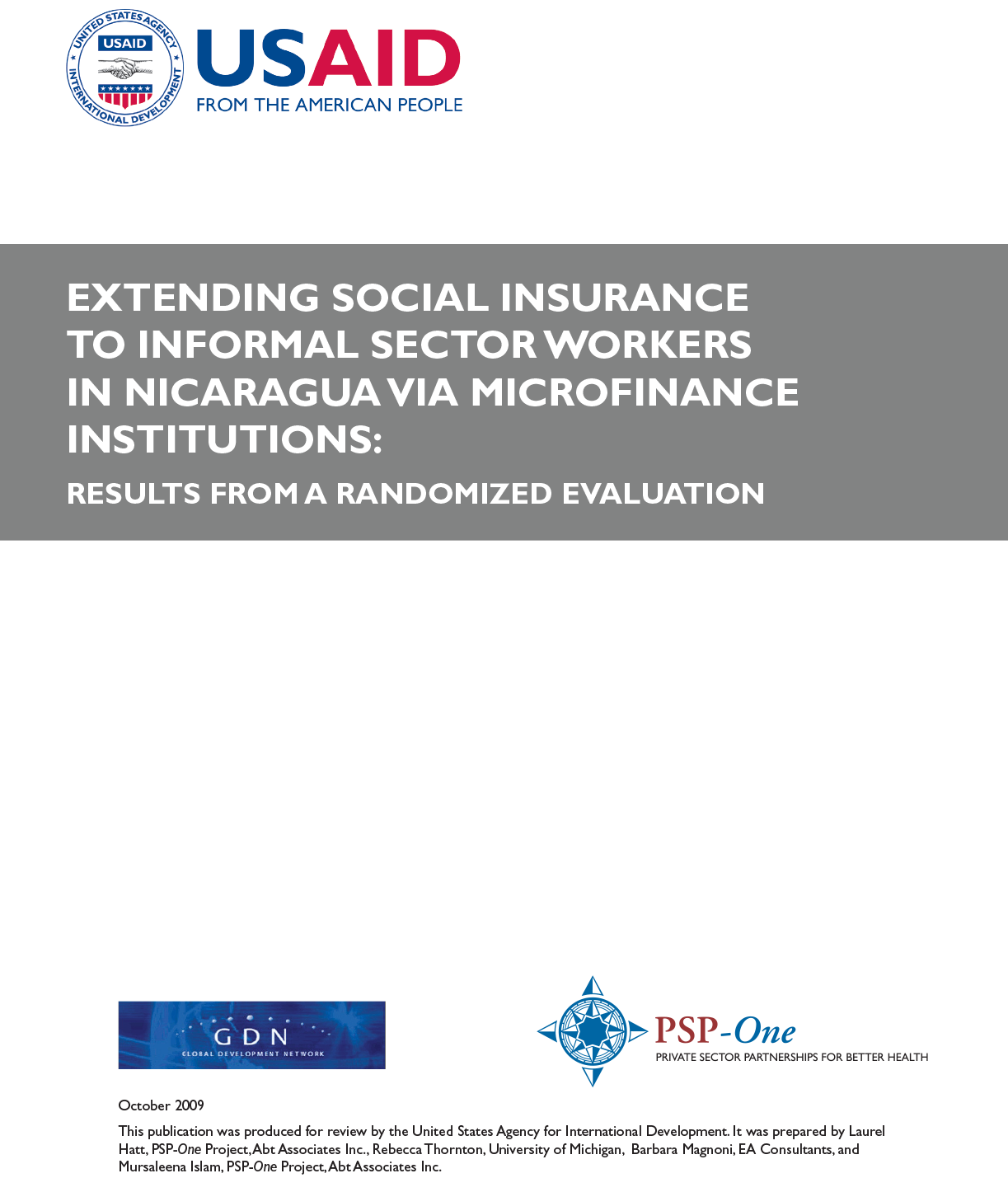
Resource Library
Extending Social Insurance to Informal Sector Workers in Nicaragua via Microfinance Institutions: Results From a Randomized Evaluation
This report presents results from a one-year randomized evaluation of a program that extended voluntary health insurance to informal sector workers in Nicaragua. In January 2007, the government of Nicaragua made its Social Security health insurance program available for a monthly fee to informal sector workers, using private microfinance institutions (MFIs) as intermediaries. Subsidies for this insurance were randomly allocated to market vendors in several large open-air markets in Managua and also randomly assigned different locations for enrolling in the insurance: either at the central Social Security (INSS) office, or at the participating MFIs. The results showed that costs were crucial determinants of signing up for health insurance—both monetary costs as represented by the subsidies offered and time and convenience costs associated with the enrollment process. Allowing individuals to enroll at MFIs did not increase uptake of the insurance. In a follow-up survey conducted one year after individuals were offered the insurance, PSP-One found that insured individuals switched from using services at private and Ministry of Health facilities to visiting covered health facilities contracted by INSS. However, overall utilization of services did not increase. Having insurance had little impact on individuals' use of reproductive health services, including family planning, most likely because this population has a very low unmet need. Total out-of-pocket expenditures were reduced among insured individuals and their family members, but the average out-of-pocket savings were lower than the equivalent unsubsidized insurance premiums. The findings also revealed very low retention rates after the subsidies expired, with less than 10 percent still enrolled in the insurance program after one year. In addition to the empirical results, the report discusses the institutional challenges and limitations of this project that are essential to consider for other similar programs and makes several key policy recommendations.
Resource Type : Report
Country : Nicaragua
Year : 2009-12-08T13:45:00
Language : English
Project : SHOPS


